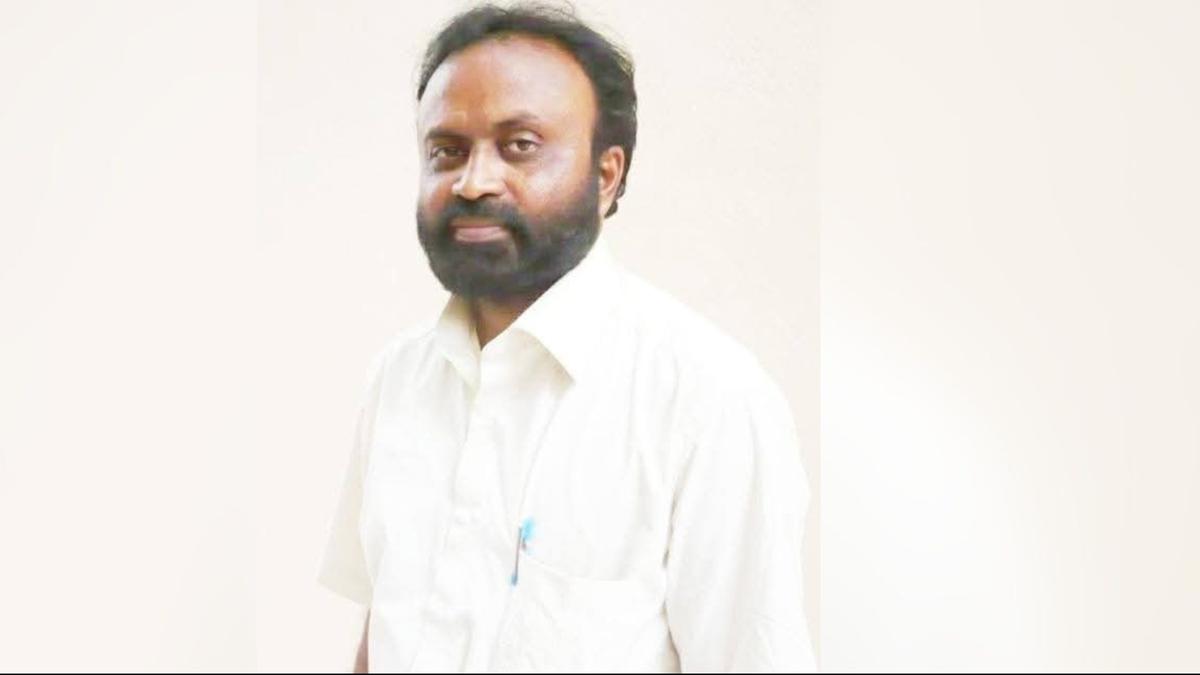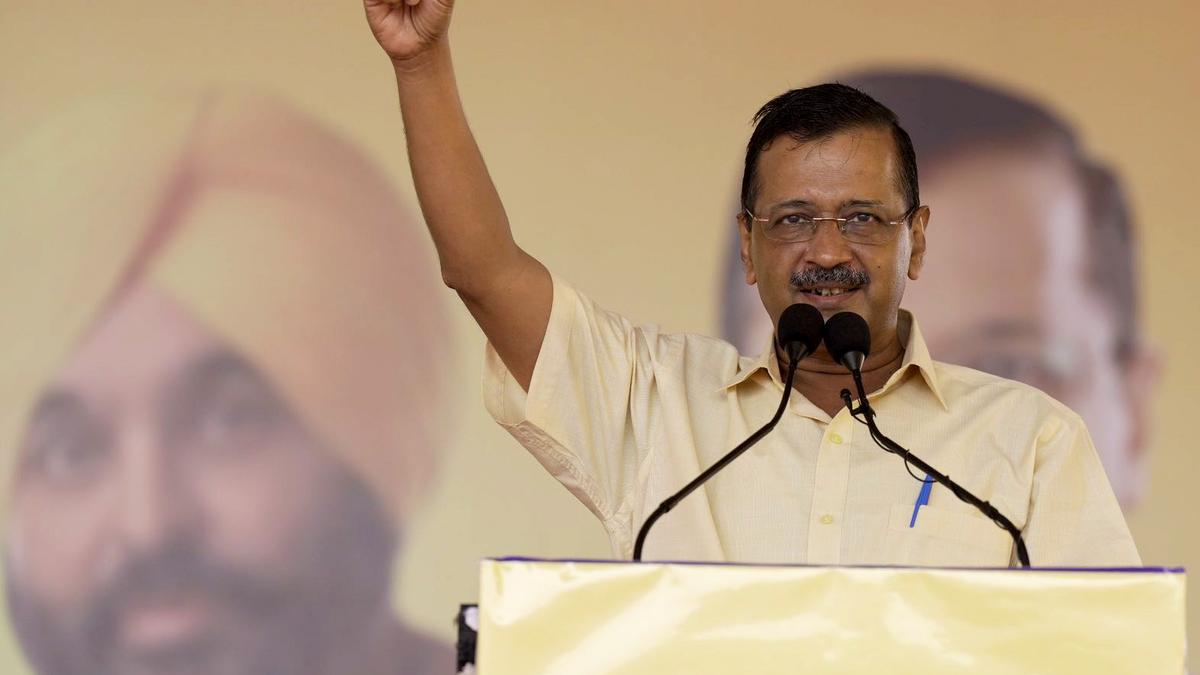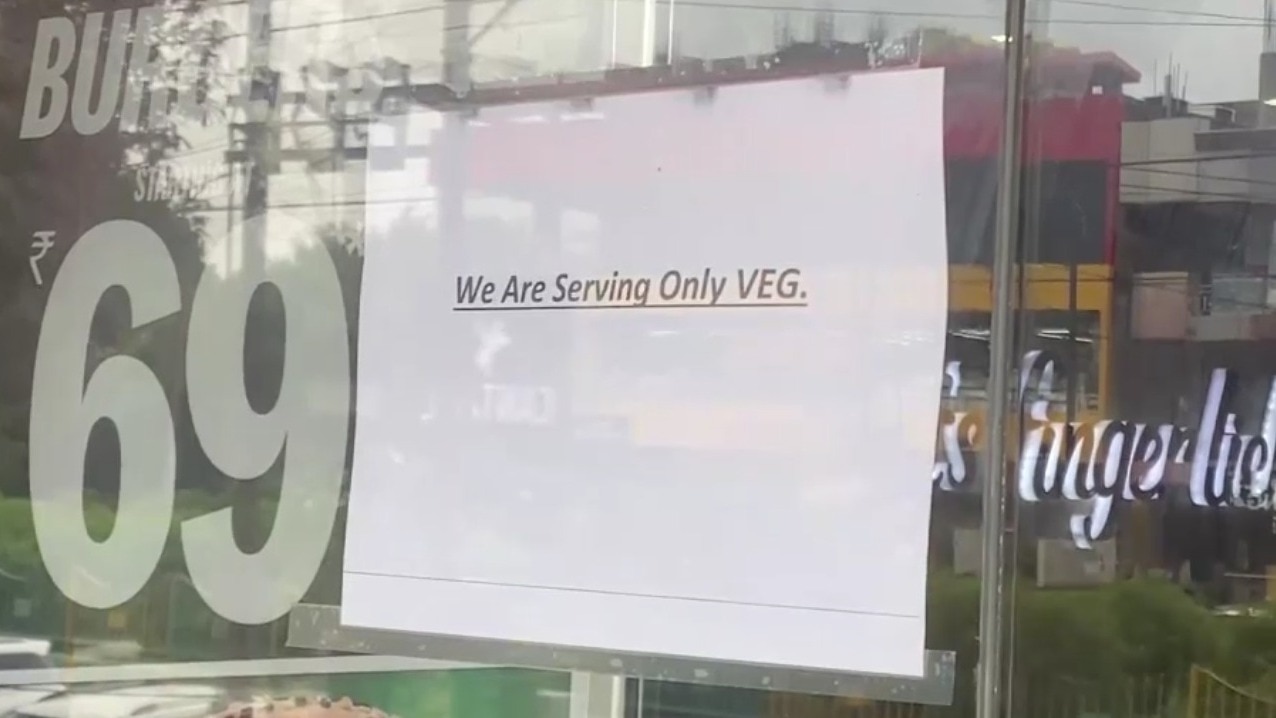Deep in debt, L. Manikandan*, a 36-year-old construction worker and father of three, made a desperate call to a relative, knowing well what he was getting into. That call set him off on a journey from his home town at Samandur in Namakkal district. The next few weeks took him to private hospitals in Salem, Vellore, Madurai, and finally, Tiruchi, where he gave up one of his kidneys, clinging to the hope of getting the promised sum of ₹5 lakh, an amount that would help him repay his mounting debt.
The decision wasn’t easy, but he knew others who had taken the road as the last resort. Manikandan was not the first in his family to do so as he claims his father had sold his kidney for ₹30,000 nearly 25 years ago. Now, lack of regular jobs and poor wages, coupled with crushing financial pressure, had driven him down the same path.
“I earn around ₹10,000 a month as we get work for only two or three days a week. This wasn’t enough to run my family and take care of my children. I ended up taking loans from microfinance companies, and to repay one loan, I took another. Before I could realise the enormity of my debt, I already owed ₹8 lakh. The companies kept increasing the interest. Choked on all sides, I decided to approach my relative, who had sold her kidney through a broker. Through her, a broker spoke to me and got my details,” he said.
Well doctored
Manikandan is the latest victim of an organised criminal syndicate involved in organ trade — a network that is well aware of the loopholes in living donor organ transplants. He made visits to multiple hospitals in different districts, and ahead of every visit, he received a set of instructions on where to go and whom to meet.
“They first asked me to go to a hospital in Salem, where I underwent a full body check. Later, I went to a private hospital in Vellore where I underwent tests again. The third round of tests was at a hospital in Madurai. They paid me ₹1,000 every time. After all the tests were completed, they instructed me on the phone on how to speak before a committee [the Authorisation Committee under the Directorate of Medical Education and Research responsible for approving living donor organ transplants]. I told the committee that I was giving my kidney to my uncle. Following this, I underwent a surgery for removal of kidney at a private hospital in Tiruchi in December 2024. I was at the hospital for seven days, and on the day of discharge, they gave me ₹4.50 lakh and dropped me off at my home in a car,” he recalled.
As in many cases, Manikandan did not receive the full promised amount. The broker, he said, refused to pay ₹50,000, claiming he had to pay a commission to a few others. Soon after reaching home, he paid up the debts with whatever he got. “I had no other option but to sell my kidney. Almost every day, the company staff would knock on our doors early in the morning, demanding payment. Now, my health is not as good as earlier. For the past seven months, I have been in pain and unable to work long hours. When in pain, I have to stay at home and rest,” he added.
Only years have passed, but the scene remains the same. Today, Namakkal is at the centre of an ongoing investigation into kidney trade involving its powerloom workforce at Pallipalayam and private hospitals in Perambalur and Tiruchi. The Directorate of Medical and Rural Health Services (DMS) has suspended the kidney transplant licences of two hospitals — Dhanalakshmi Srinivasan Medical College and Hospital, Perambalur, and Cethar Hospital, Tiruchi — after establishing their involvement. While a detailed probe is under way, the kidney trade in Pallipalayam is yet another case that might have slipped through the cracks, if not for the aggrieved donors speaking out.
A cruel flashback
In early 2007, Tamil Nadu saw one of the largest documented kidney rackets hit headlines. Several persons, mainly women, affected in the 2004 tsunami in Chennai’s coastal villages had sold their kidneys owing to extreme poverty. While the findings shocked the State, it pushed the government and the policymakers to build a model to promote deceased donor organ transplants. Tamil Nadu’s Cadaver Transplant Programme took form in 2008, and today stands as the Transplant Authority of Tamil Nadu.
Yet, organ trade had existed even before that in the State. It was evident from a cross-sectional survey, conducted in February 2001 among 305 individuals who had sold a kidney in Chennai, an average of six years before the survey. The survey found that 96% of the participants sold their kidneys to pay off debts. The average sum received was $1,070, and most of the money received was spent on debts, food, and clothing. But the survey revealed that after nephrectomy, the average family income declined by one-third, and the number of participants living below the poverty line increased.

In the eye of a storm: Namakkal district is at the centre of an ongoing investigation into kidney trade. The photo shows Health Department officials making inquiries at Pallipalayam in the district recently. | Photo Credit: SPECIAL ARRANGEMENT
The story remains the same. The present kidney sale racket involving donors from Namakkal’s powerloom workforce is nothing new, says M. Ashokan, secretary of the Namakkal District Powerloom Workers Union. “Across Tamil Nadu, there are around three lakh powerloom workers. There are around 75,000 to one lakh workers in Namakkal alone. Commercial kidney donations have been happening for more than three decades. Not only powerloom workers but also the unorganised sector workers are targeted by brokers. Single mothers and women workers are among the main targets,” he claims.
“Every month, we get work for 15 to 20 days and receive ₹400 to ₹600 per day. Earlier, these workers relied on moneylenders for loans, but now it is microfinance companies which lend without restriction. A woman at Pallipalayam got loans from 17 microfinance companies. The staff of the companies even warned that they would block the Aadhaar cards of the family members if they default on repayment,” he says.
The DMS, the Appropriate Authority that plays a regulatory role in the implementation of the Transplantation of Human Organs and Tissues Act (THOTA), 1994, said the probe established the fact that the poor were targeted, and fake documents were prepared for commercial kidney donations and transplants.
A source explained: “Legality can be circumvented in certain ways, Either they can bring a donor, with matching documents, and the recipient and cheat the Authorisation Committee, or both the donation and the transplant will not be on record.” The latter does happen — kidney removal from a donor is recorded as nephrectomy to treat kidney cancer, while the transplant does not come into official records.
In fact, in August 2024, DMS officials stumbled upon a case of unauthorised kidney donation and transplant at a private hospital at Pulianthope in Chennai. Officials found that a renal transplant involving a donor from Namakkal was performed without the permission of the Authorisation Committee. Officials found that the hospital had prepared a fake Authorisation Committee certificate and suspended its kidney transplant licence.
In its latest statement, DMS recalled how an inquiry revealed that the Pulianthope hospital (Muthu Hospital) had also targeted the powerloom workers of Pallipalayam and executed illegal kidney transplants through middlemen. The Directorate said in 2014 that action was taken against transplant surgeon Ganesan (Sangagiri, Salem) for malpractices in documentation. He, along with middleman Ayyavu of Sangagiri, Salem, and impersonator Velumani of Kumarapalayam, Namakkal, were booked under provisions of the THOTA for violating rules, and criminal proceedings were initiated.
J. Amalorpavanathan, vascular surgeon and former convenor, Cadaver Transplant Programme, says there is no way a transplant team of a hospital, which is involved in illegal organ donation, can claim ignorance. Seven entities are required for an illegal organ transplant — donor, recipient, middlemen, transplant physician, transplant surgeon, transplant anaesthetist, and hospital.
“Once the Authorisation Committee grants permission for a donation, the State has a certain amount of responsibility for what happens thereafter. The Appropriate Authority grants transplant licences to even small hospitals and no regular inspections are done nor data on transplants collected and published. They too have a responsibility. The government should reassess the functions and responsibilities of its own organisations and ensure that every transplant is brought under public scrutiny,” he says.
A senior surgeon notes that organ transplant licences were granted to small hospitals that were ill-equipped to perform transplants and lacked transplant teams and facilities, including intensive care units. Another doctor recalled how a few years ago, he witnessed a private hospital promising an organ transplant for a desperate patient who did not have a donor by offering a package including facilitating a donor at a cost of ₹30 lakh.
‘Near relatives’
The law permits living donor organ transplants when the donor is a “near relative” of the recipient. The term “near relatives” refers to father or mother, brother or sister, son or daughter, and spouse. Later on, grandparents were also included in the list to help paediatric patients. “The idea is to help, but to help genuine people. There are stringent procedures in place, starting from the hospital level where HLA typing [blood test] is done and donors are interviewed during which a family tree is drawn to ascertain the relationship. In fact, we also look for minute details of facial resemblance and bonding between the donor and the recipient,” a senior doctor adds. In the case of spousal donation, the marriage registration certificate is checked, and photographs of the wedding or invitation are screened and the copies are submitted to the committee. If a sibling is the donor, the consent from his/her spouse is also obtained and they need to produce their marriage certificate too. “So, there are many levels of checks, and documentation and reports are foolproof. So, none of the stakeholders involved in the process can claim ignorance of an illegal donation and transplant,” he adds.
For years, experts have been debating a specific clause in the THOTA. “This is Section 9 (3) and the word to look out for is affection,” says Sunil Shroff, managing trustee of MOHAN Foundation, a not-for-profit organisation started 28 years ago to promote organ donations. According to this provision, “If any donor authorises the removal of any of his human organs before his death under sub-section (1) of Section 3 for transplantation into the body of such recipient, not being a near relative, as is specified by the donor by reason of affection or attachment towards the recipient or for any other special reasons, such human organ shall not be removed and transplanted without the prior approval of the Authorisation Committee”.
“There is a need to revisit this clause. This has created a mechanism to make unrelated donations possible. The hospital thinks the onus is on the committee to prove the relationship, while the committee feels that the onus is on the hospital. This ambiguity has always been there... As a result, accountability becomes a casualty,” Dr. Shroff says. He also underscores the need to bring in the concept of independent donor advocates to take care of the interests of donors and prevent malpractices.
A court verdict
Experts point to the Madras High Court’s verdict, of May 2024, that the Authorisation Committee must take the statement by a donor that he/she is making the donation out of love and affection for the recipient at face value, and permission should be granted subject to there being no evidence that money or money’s worth has changed hands. A senior doctor questioned: why none of the doctors’ bodies voiced concern over this verdict that could have far-fetching implications for organ transplantation. “How can claims of love and affection be accepted at face value? If this is the case, what is the need for an Authorisation Committee mandated to make verifications?”
Dr. Amalorpavanathan notes that this is why Tamil Nadu needs its own transplant Act to define the roles of the Appropriate Authority, the Authorisation Committee, and hospitals.
While the DMS has now asked their joint-directors to step up surveillance and conduct inspections, officials and experts do wonder if a solution is at hand. “The poor are the target. When debts take over their lives, middlemen use the opportunity to turn their organs into a commodity. The stories remain the same — whether it is Pallipalayam, Kumarapalayam, or north Chennai. This is a large and organised criminal network, with nexuses running deep and wide,” an official says.
“Tamil Nadu has two parallel systems — the deceased donor transplant programme that is running exemplarily and the living donor transplant programme that is opaque and confused. The authorities should ensure transparency in transplants and can pressure hospitals by asking for periodic updates on outcomes and conduct inspections,” an expert said.
For Manikandan and donors like him, the loss of a kidney is only a band-aid, and as the cross-sectional survey found, “selling a kidney does not lead to a long-term economic benefit and may be associated with a decline in health”.
(*name changed)



.png)
.png)
.png)
















 6 hours ago
3
6 hours ago
3







 English (US) ·
English (US) ·